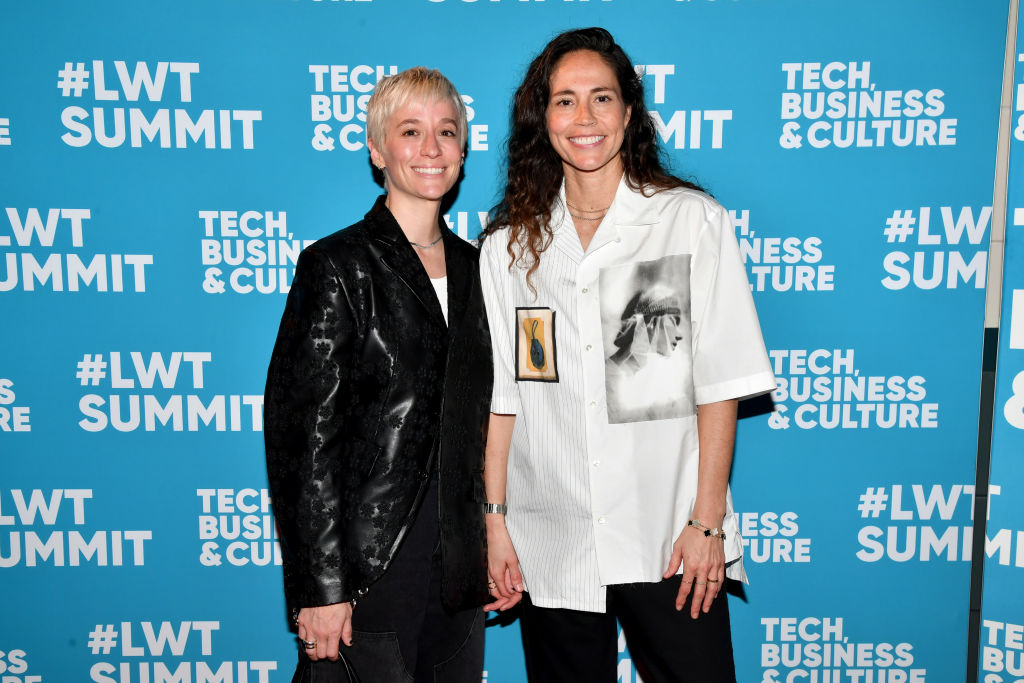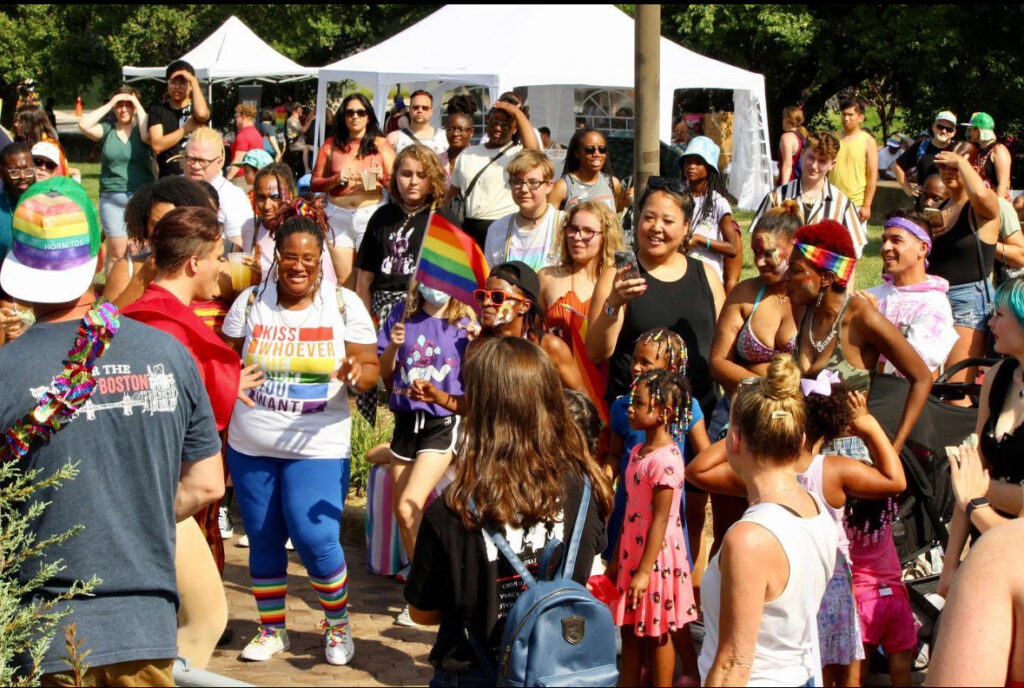Am I Doing Polyamory Wrong Or Is It Just Not Right For Me?

Jealousy in polyamory is a common concern. How your own unique heart navigates it may determine whether polyamory is a good choice for you.
If you’re in a queer dating scene, you may have noticed that polyamory is becoming more popular. (I’m using polyamory as a catchall for any kind of consensual non-monogamy.) While obviously monogamy is still dominant in mainstream society, some people report that in their subcultures, like say, certain queer dating scenes, the pendulum has swung and polyamory feels like not just an option but the new expectation.
With that comes a lot of us navigating new territory, maybe asking questions we’ve never asked of ourselves before. What relationship style do I prefer? Is polyamory something everyone is capable of adapting to? Does struggling with polyamory mean I’m doing it wrong or that it just isn’t right for me?
For some people, polyamory has helped them get in touch with and communicate what they need. For others, trying polyamory helped them learn that what they need is, well, monogamy.
What does it mean if I struggle with jealousy?
Jealousy in polyamory is a common concern. How your own unique heart navigates it may determine whether polyamory is a good choice for you.
Nicole, who is poly, says, “Jealousy happens a lot. Sometimes it means that someone isn’t as okay with ‘not being the only one’ as they thought they’d be, and you have to part ways. Other times it’s just a natural and normal emotion.”
For Haylee, also poly, working through jealousy was helpful and clarifying.“Reframing hints of jealousy as compersion helped me pinpoint more exactly what emotions I was feeling or needs I desired filled. This made it much easier to communicate boundaries and expectations as I was more clear about my own sources of relationship anxiety.”
But others had a different experience with their jealousy, which led them back to monogamy.
Alex (whose name has been changed for anonymity) says, “The thought or sight of my partner with someone else was upsetting, not exciting. She would tell me that feeling jealous just means that I’m insecure. Basically, I am never justified in feeling negative emotions as a result of someone’s actions, even my partner.”
Side note: While difficult conversations can be healthy, if you feel like a partner is invalidating you, gaslighting you, or manipulating you, that’s a red flag — regardless of relationship style.
How do I figure out my boundaries?
Sometimes we don’t know what our boundaries are until they are pushed against. Whether something is nudging you out of your comfort zone or is crossing a boundary is for you to decide.
Many of us have been socialized to ignore our own needs in favor of what others want. This can make it hard to advocate for ourselves, which healthy relationships of any style require.
Some people have sharpened their self-advocacy skills through their poly relationships, discovering what they want and voicing it.
Haylee says, “What I love about polyamory has been the normalization and practice of communicating boundaries and expectations.”
Michael, whose monogamous-turned-poly relationship ultimately didn’t work out, still learned from those practices of communication. “We don’t always know who we are or what we need,” he says. “Part of it is trying things on. There were things that were discovered through the journey of polyamory that allowed us to see the cracks and the mortar. The level of honesty we had, you know, to have cultivated a trust, to create a space in which you can tell your partner, ‘I have feelings for someone else’ and have it not have to be a fight or a huge problem, that was probably one of the best things we could have done because it allowed us have the conversations. Speaking what you need and want is one of the most powerful things you can do.”
Other people’s poly relationships pushed against their boundaries in a way that made them realize their boundary is, in fact, monogamy.
Meghan says, “I find I have needs that can only be met in one-on-one intimacy.” But she has found herself in spaces where she felt her boundaries weren’t seen or valued by her community. “If you’re monogamous you’re ‘buying into capitalism,’ and it’s like, no, I’m setting a personal boundary and you’re trying to violate it with the language of sex positivity.”
Is everyone capable of being poly?
Bullies on the gay internet don’t represent everyone, but lately, I’ve been coming across quite a few cutesy infographics on social media with condescending little quips like “When you tell me non-monogamy sounds hard, what I hear is that you need to work on yourself.” Ew. First of all, stop telling people to “fix” themselves. Second of all, there’s this presumption that if something isn’t working, it’s your fault for not trying hard enough. It’s the same tired old “pull yourself up by your bootstraps” advice, totally disregarding other factors like differing contexts and abilities.
Research shows that there are temperament and personality differences between people who are and aren’t satisfied with polyamory. Traits of temperament, hypothesized as biological, or at least, really really hard to change, can be a huge factor in whether polyamory works for you. For people with certain traits, it’s well within their range to “work on” jealousy, risk, and trust. For others, it’s completely different. It’s sort of like how introverts can force themselves to be more social but ultimately can’t change that their brain and nervous system are wired to thrive on less stimulation, and extroverts can’t change that they are wired to thrive on more stimulation. We can experiment with our habits and actions while honoring our individual dispositions and limits.
But insinuating that everyone is equally capable of adjusting their feelings is like suggesting that everyone is equally capable of physical tasks. This “toxic positivity” masks the meaningful variation in personality, temperament, attachment style, and ability.
Meghan says, “Being monogamous doesn’t make me less queer, and for neurodiverse people, it’s a reliability issue. My autistic ass doesn’t need more social confusion around sex.”
Is polyamory more evolved?
Some argue that polyamory is more evolved because you’re managing your emotions of jealousy and insecurity. Some argue that monogamy is more evolved because you’re managing your emotions of attraction and boredom. I argue that this is all very interesting but is the wrong question. We can decide what suits each of us without playing into the superiority complex that society has set up around relationships.
In “Against Compulsory (Non)Monogamy,” poly expert Elisabeth A. Sheff, Ph.D. argues that the goal should be respect for many relationship styles, not just trading out compulsory monogamy for compulsory non-monogamy. “There is also a snarky tone in some poly folks and communities that look down on monogamous people for being too small, jealous, grasping, and un-evolved to be able to handle consensual non-monogamy,” she observes.
Haylee says, “I really dislike the perspective that polyamory is more ‘evolved’ or ‘natural’ — it’s just another way of doing things which happens to work better for a lot of us. Sure, it has been generally dismissed, belittled, and ostracized culturally, but it doesn’t mean everyone should adapt if it doesn’t meet their personal needs.”
What about non-romantic friendship?
Our society has placed so much emphasis on romantic partner(s), it’s as if we only share our ideal home, adventures, and daily lives with them. But who says that space is reserved for romantic partners only? Why not friends?
Mara, who describes herself as practicing as non-hierarchical polyamory as possible, points out that even the way we think about friendship versus romantic relationships has been made into a hierarchy, but really doesn’t need to be:
“Something I’ve learned from polyamory, too, is just how many different kinds of relationships we can have in terms of not just how we think about romantic partners but also how we think about the importance of our friendships and not having the hierarchy of, like, your romantic partners have to take priority over your friendships.”
It’s so important to not let friendship be forgotten in the focus on romantic relationship styles. After all, there’s no singular right answer for how to share your life, your time, and your home. Giving friendship more of a place in that can be a beautiful, revolutionary thing, too.
Ultimately, it is up to you to discover, describe, and define your relationship style.












